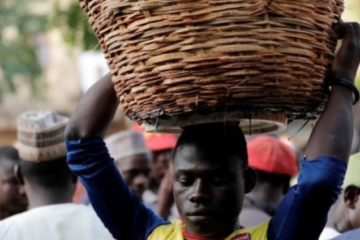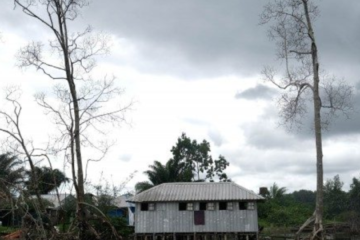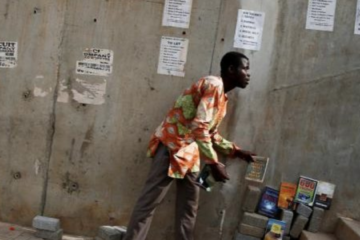“Don’t go. I swore I would never go back there,” came the voice of my friend Jay Smith on a trans-Atlantic Skype call. “I’ve been in over sixty countries. I’ve been all over Africa. I lived there, and I’ve never felt unsafe the way I did in that country. There is something especially terrifying about that place.”
“Good to know,” I replied. “Alan said that he goes there all the time. He said he even takes his children.”
Alan was a British politician who had attended one of my lectures in London earlier this year. To hear him tell of it, Nigeria was like Club Med.
“Alan?” Jay was incredulous. “Did Alan also tell you that when he goes he’s traveling with the British government and is accompanied by heavily armed guards? You? You’re going to have an entirely different experience.”
This was my introduction to Nigeria. I had been invited there by my friend, Jwan Zhumbes, the Anglican bishop of Bukuru. He was shepherd to a diocese that had been under siege from the Boko Haram and the Fulani Herdsmen Militia and was, in my estimation, a great man doing a great work.
Jwan and I had done our doctoral work together. He had asked me some years ago to come and teach the members of the diocese on issues of faith and culture. In addition to this, I wanted to see firsthand the trials of the Persecuted Church and to observe the workings of Islam in the Third World. I had decided I would need to do this part of our Around the World in 80 Days journey alone. It was simply too dangerous to take Zachary or anyone else.
So, before this expedition began, I went to the Nigerian consulate in Atlanta. I wanted to talk to people whose job it was to dispense the kind of advice that I now needed.
The consulate itself is an austere, nondescript brick building. Unimpressive by any measure except, perhaps, a Nigerian one.
“Hello,” I said, declaring myself to the receptionist who seemed unaware of my presence at her desk.
“May I help you?”
“Yes, I am going to Nigeria and I’d like to get some advice on ‘dos and don’ts’ for those of us who have never been there before.”
“You really want to go?” she said with a feigned look of surprise and then, suddenly, she burst out laughing at her own inside joke. She didn’t bother explaining it to me. I would get it, she seemed to imply, once I had been to Nigeria.
Regaining her composure, she said what was expected of her: Nigeria is a lovely country, it is very safe, people love it, etc.
“But what about the U.S. State Department’s travel warnings?” I put in.
“Media exaggerations,” she replied dismissively. She then presented a box with twenty or so passports in it. “See? Look at all the people who are applying for visas to immigrate to Nigeria.”
Apparently, the French had given the Statue of Liberty to the wrong country. To hear her assessment of things, one might have thought that Nigeria was just the victim of bad publicity. Boko Haram? Fulani Herdsmen Militia? Civil war? Kidnapping, extortion, rape, extreme poverty, famine, child trafficking, corruption—Bah! Nonsense! Media exaggerations!
Having the sense that I would not get the unvarnished answers I had come for, I turned to leave. As I did so, she stood, looked at me gravely and, with eyes wide, said:
“GOOD LUCK.”
She said it slowly and with emphasis as if to say beware. It was then that I noticed the security camera. Was she saying one thing, that which she was paid to say, while meaning another the whole time? I couldn’t know.
In the parking lot, I briefly talked to a man who also worked at the consulate. Perhaps he would give me clarity. He was professional and took my questions seriously. This was the conversation for which I had come. He asked the sort of questions I would expect to be asked:
“Why are you going?” and “Who invited you?” and “Do you know him well?” and “Who is meeting you at the airport?” and “Do you have security?”
My answer to the last question seemed to alarm him: “No, I don’t have any security.”
He paused. “Are you going alone?”
“Yes.”
Was that a look of admiration or did he fear for my life? Spotting his superior driving into the parking lot, he led me over to her. He seemed eager, relieved actually, to hand me off to someone else. But it was no use. I felt like I was talking to the receptionist again.
“You will love Nigeria!” she practically sang. “Nothing to worry about.”
Then, without any apparent irony, she leaned in and added: “But don’t talk to any strangers, go nowhere alone, and if someone wants to fight you, be official.”
“Be official”? What did this mean? I didn’t know. It had been a wasted trip. I left no wiser.
Or did I?


